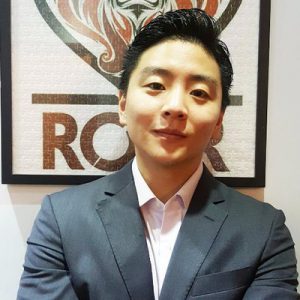Jiang Hu Esports Club, previously known as Roar Esports Club, is a Chinese diversified esports club, originally established in 2014, and resurfaced in 2017. Recently, the club has rebranded with its new name ‘Jiang Hu‘ to strengthen the connection within Chinese esports community.

After four years of development, Jiang Hu has cultivated five professional esports team and obtained diversified income from team transfers, sponsorships, and media deals.
Currently, Jiang Hu Esports Club focuses on mobile esports with local governments to bring esports into their urban culture. We spoke to the club founder, Anthony Wong to find out about the creation of the team and how mobile esports is the mainstream in the Chinese market.
ESI: Will mobile esports become the mainstream in China’s esports market, and what do you think of China’s future esports market?
Anthony Wong: It’s not a question of will mobile esports become mainstream, but a question of how big mobile esports will be. Mobile esports is already a significant part of mainstream esports in China. If you look at the KPL, 20,000 seat arenas are selling out, and brands recognise this potential within mobile esports.
The future of mobile esports will only grow stronger and stronger. The userbase, especially in China, is tremendous, and the viewership is extremely high for games like King of Glory and PUBG Mobile. Onmoji Arena is also an interesting mobile title with a solid professional league developing. It is just a much more accessible platform. Almost everyone has a smartphone, but not everyone has a gaming PC. Not to mention that being mobile means just that, mobile.
“It’s not a question of will mobile esports become mainstream, but a question of how big mobile esports will be.”
ESI: As a practitioner with global esports insights, why did you choose Asia to start and develop your esports business?
AW: Before diving into esports, I was already doing business in China. Simply put, I fell in love with how fast everything moves. I knew Asia would be the best location to develop an esports business – just look how crazy Asia is for esports, just overall, the fans are amazing and passionate, and the number of fans in this part of the world is mind-blowing.
From the start, we have strongly believed in discovering and cultivating talent, and Asia has an abundance of raw talent in any field. We wanted to be where the best talent is.
ESI: Why does the club think it is important to develop the local community in the esports industry and can you tell us some specific measures about this strategy?
AW: Jiang Hu Esports Club refers to more than just a community of martial artists. It refers to people that live outside the societal norms and have their own rule of law and principles. We felt that Jiang Hu could also apply towards gamers, who are often misunderstood and traditionally are not part of the mainstream.
It is crucial for us to interact with gamers and fans on a personal level. It is much easier for people to root for an organisation or player that is playing an active part in their community. One of the things we are working on is setting up “esports clubs” in local universities to provide support for student talent. This allows us to also scout for exceptional talent, and it will create local heroes.
“We wanted to be where the best talent is.”
ESI: Recently, the club has signed with Wenzhou Broadcasting and Television Media Group. Can you share your insight about the difference between the cooperation with the government and local community?
AW: We chose the Wenzhou Media Group because we believe they are the best partner for our goals. Government support is vital for development for both our business plans and community development. The joint venture will give us unrivalled access and exposure in this region, and access to corporates and brands we might not have had the chance to cooperate with. We’re looking forward to achieving success together.

